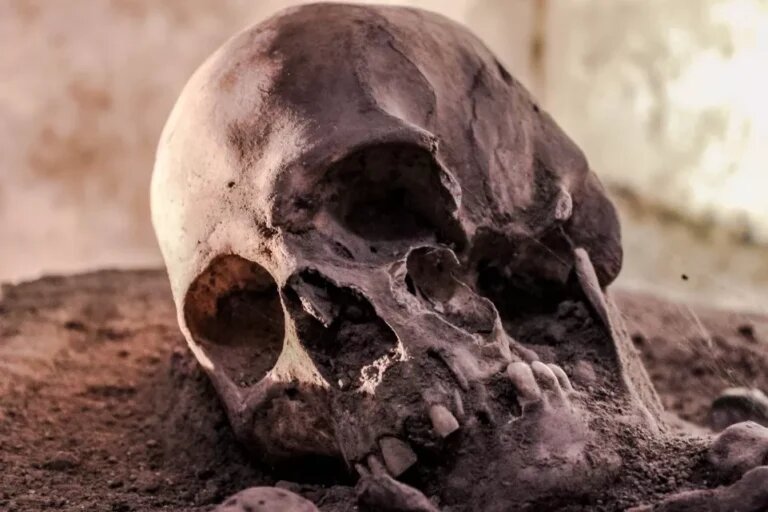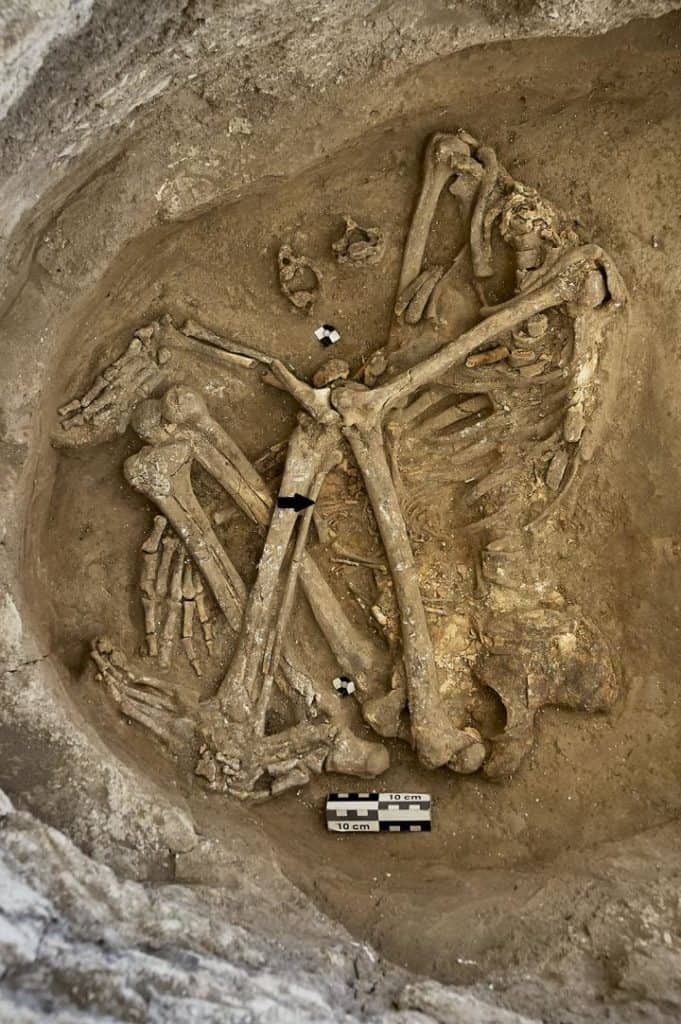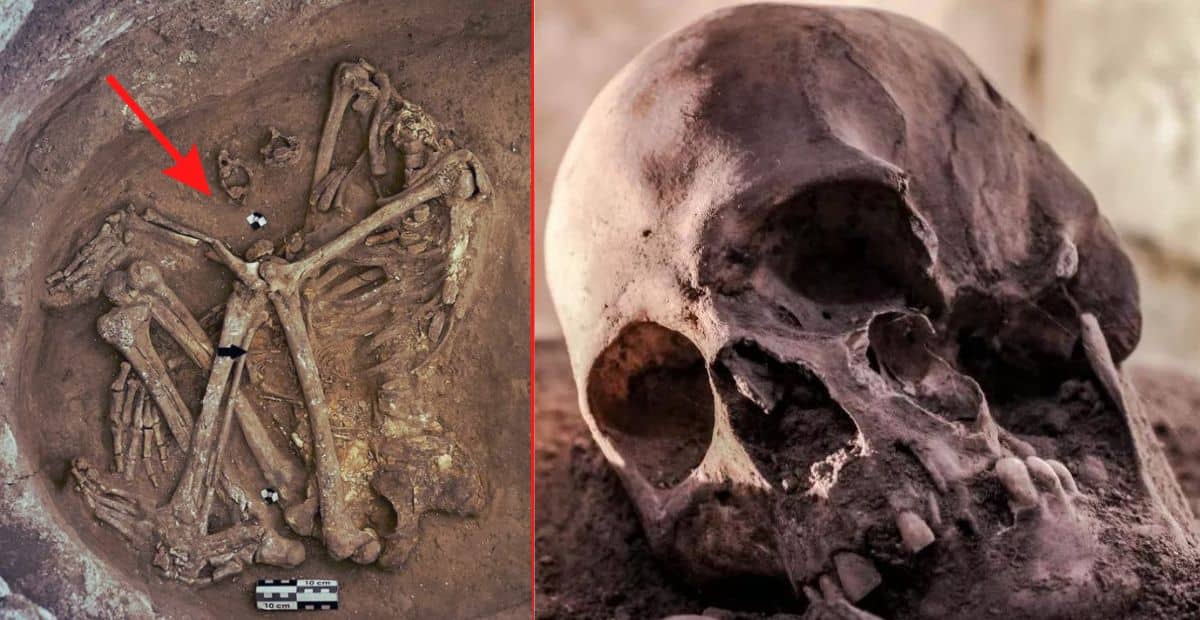Mystery 13,500-Year-Old Tomb With Headless, Squatting Young Woman Discovered in China
Researchers have uncovered the partial remains of a young, headless woman in a tomb in Guangdong Province, south China. The scientists believe she has been “squatting” in the grave site for roughly 13,500 years.
Some archaeologists believe her unusual resting position may symbolize pregnancy, Chinese state news agency Xinhua reported. But researchers involved in the excavation aren’t sure how she lost her head.
Researchers have uncovered the partial remains of a young, headless woman in a tomb in Guangdong Province, south China. The scientists believe she has been “squatting” in the grave site for roughly 13,500 years.
Some archaeologists believe her unusual resting position may symbolize pregnancy, Chinese state news agency Xinhua reported. But researchers involved in the excavation aren’t sure how she lost her head.

The tomb is located in China’s Qingtang ruins—an Upper Paleolithic cave site where archaeologists recently found pottery fragments that may date back some 17,000 years, according to Xinhua.
Scientists have also uncovered prehistoric fireplaces, stone tools and antlers, among other ancient finds, according to The Institute of Archaeology at the Chinese Academy of Social Sciences (CASS).
Researchers with the Guangdong Institute of Cultural Relics and Archaeology and the College of Archaeology and Museology at Peking University excavated the site from 2016 to 2018.
Although the “squatting woman” discovery was only reported by Xinhua in English this April, it made a list of the top Chinese archaeological finds of 2018, CASS reported back in March of this year.
In other Chinese archaeological news, researchers recently found a number of rock carvings in Inner Mongolia. Although some scientists think they could date back up to 4,000 years, other archaeologists remain unconvinced.

Meanwhile in Egypt, researchers recently announced they had found an ancient tomb filled with dozens of mummies—some of which contained the remains of children. The grave complex also contained a well-preserved statuette and a number of tools of the ancient Egyptian funerary trade.
Archaeologists excavating the ancient city of Pompeii in Italy recently discovered the remains of a fast-food stall. The snack bar features intricate, well-preserved paintings and numerous ancient storage vessels. Much of Pompeii and its neighbor Herculaneum was preserved for some 2,000 years after the eruption of Mount Vesuvius, a nearby volcano.




